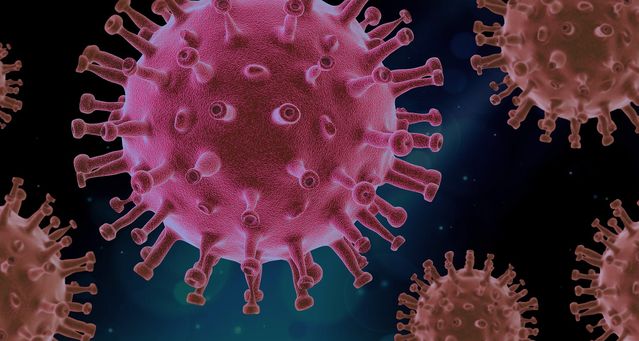Loneliness
5 Habits That Strengthen Your Immune System Against Covid-19
Minor tweaks to your daily routine can help your body’s immune system.
Posted May 26, 2020 Reviewed by Abigail Fagan

A healthy immune system is an important line of defense against COVID-19. Unfortunately, our modern lives are often built around bad habits that can weaken our immune systems and reduce our ability to fight off viruses, such as high stress, poor diet, and environmental toxins. With the current pandemic (not to mention threats like antibiotic-resistant bacteria), it is important to shore up the body’s defenses now more than ever.
But don’t worry—by incorporating a few minor changes to your daily routine, you can develop simple habits that will boost your immune system and protect you against future illness.
1. Stress Less
One of the biggest threats to our immune system is stress. When we are exposed to chronic, daily stressors, it increases inflammation and cortisol, two factors that put a serious strain on the ability to fight off infections. This means that managing daily stressors is imperative, but that’s easier said than done.
First, let’s focus on what you should not do. Many of our bad habits—alcohol, smoking, eating unhealthy foods—represent bad ways we try to manage our stress. Engaging in these bad behaviors is like adding fuel to the flame—they only weaken our immune systems further. If food, alcohol or drugs is your go-to coping mechanism, it’s imperative that you learn better ways to manage stress.
Now let’s discuss what you should do. One of the healthiest (and oldest) ways to reduce stress is meditation, and research shows it strengthens your immune system. For example, a 2003 study had one group engage in mindfulness meditation for eight weeks and compared them to a group that did not meditate. Then both groups were given the flu shot. The group that meditated showed significantly higher levels of flu antibodies (suggesting a stronger immune response to the virus) than the non-meditation group.
Now meditation isn’t something you can master in one day. It requires persistence and consistency, so the best thing to do is make it a daily habit. Apps like Calm and Headspace, as well as free videos on YouTube, provide excellent training on how to get started. At the very least, commit to setting aside 10 minutes a day to meditate—not only will it boost your physical immune system, but it will also boost your psychological immune system and help you deal with the emotional fallout we are all feeling due to the pandemic.
What should you do if you're not a fan of meditation? The good news is you can get the same benefits by engaging in other mindfulness practices, such as deep breathing, yoga, hiking, and even journaling. The point is to work into your daily schedule a time when you can give your mind a break, focus your attention inward, and rejuvenate your brain and body.
2. Socialize More
Feeling lonely because of social distancing? You’re in good company. Before the pandemic, more than 60 percent of Americans reported feeling lonely. This number has likely only increased in recent months, causing some to speculate we are in the middle of a loneliness epidemic.
Most of us recognize that loneliness is bad for our minds, but few people realize it can also be bad for our bodies. Loneliness increases our stress levels, as just discussed, puts us at greater risk for infections and diseases. In fact, research shows that a lack of human connection wears on your body more than smoking, excessive alcohol use, or lack of exercise. Experts actually estimate that the effect of loneliness on health is equivalent to smoking 15 cigarettes a day. Even more shocking, loneliness has been shown to increase the risk of death by 25 to 45 percent.
Given this, it comes as no surprise that loneliness impairs the immune system. This effect was shown in clear detail by researchers at Carnegie Mellon University when they examined loneliness among a group of college freshmen. During the first semester of college, researchers assessed these students’ feelings of loneliness and recorded the size of their social network (the people they had social contact with at least once a month). Then the researchers gave the students their first-ever flu shot and checked their immune response one month and four months later.
The results indicated loneliness and network size were both independent predictors of an antibody response. The weakest immune response was found among students high in loneliness and low in network size. These researchers also discovered the reason why loneliness had this devastating effect: stress. Greater loneliness led to more stress and in turn, more stress lead to a more weakened immune system.
The current rules regarding social distancing have certainly changed the way we connect with others, but it doesn’t mean such connections are impossible. Consider small things that you can do to nurture your current relationships. Use social media to reconnect with old friends, use Zoom to set up a virtual lunch with loved ones, organize a family game night, or take a few minutes to chat with your neighbors from a safe six-foot distance. You can also develop new connections and expand your social network by joining an online group with shared interests, such as a church group, book club, or other group.
3. Get Good-Quality Sleep
For decades, we as a society neglected the importance of sleep. Not anymore. Experts now agree that one of the best ways to strengthen your immune system is to consistently get a good night’s sleep.
Thousands of scientific studies have indicated the many ways poor sleep weakens your immune system and puts you at risk for disease. Those of us who clock less than the recommended seven hours per night are at a greater risk of developing chronic diseases (heart disease, diabetes, cancer, and Alzheimer’s disease) and infectious diseases (the common cold and the flu).
In one such study, researchers purposefully exposed people to the common cold virus and found that those who slept under five hours per night were four times more likely to develop a cold than those who slept more than seven hours. Another study examined the impact of sleep on T-cells. T-cells attack and destroy infectious cells, so they are widely considered to be our immune system’s frontline defense. Researchers of this study found that people who got a full night’s rest had higher T-cell activation than those who skimped on sleep.
To make sure you are getting your zzzs, practice good sleep hygiene. Get seven to eight hours of sleep every night, go to bed at the same time every night, avoid caffeine and blue light in the evening hours, and try to establish a nightly bedtime routine. And if you want to learn more about the importance of sleep and how to improve it, check out Dr. Matthew Walker's excellent book, Why We Sleep.
4. Dial Down Inflammation
Chronic inflammation is now considered to be the underlying cause of nearly every human disease, from diabetes and heart disease to depression and fibromyalgia. Inflammation isn’t necessarily a bad thing—it’s your body’s natural, healthy response when under attack. In the short term, it’s a very effective strategy. When you are invaded by a pathogen, your immune system rallies its troops in the form of T-cells, cytokines, and the like and uses them to drive off the offender. All of this activity in your body takes the form of inflammation.
But what happens when this inflammatory response becomes chronic? In our modern era, we are exposed to a wide range of factors that turn up the heat on our inflammatory response, including sugar, alcohol, gluten, dairy, environmental toxins, processed meats, highly processed vegetable oils—the list goes on and on. As a result, the dial on our immune system is constantly turned up to high and our body never gets a chance to rest and recover.
A healthy diet is one of our best defenses against chronic inflammation. Unfortunately, our modern diet is chock full of things that increase inflammation. These include heavily processed foods (think fast food or nearly anything you eat out of a box or bag), poor quality oils, and added sugars. To make matters worse, many of the foods we consider “healthy” are contaminated with pesticides and heavy metals like arsenic.
If you want a strong immune system, you need to remove inflammatory foods in your diet. Here are a few tips on how to do that:
- Check labels and avoid added sugars.
- Eat healthy fats (fish, olive oil, avocado oil, nuts, grass-fed beef) and avoid bad fats (vegetable oil, canola oil, palm oil, and corn oil).
- Adopt a plant-heavy, anti-inflammatory diet (think Mediterranean or Pegan diet).
- When it comes to the “dirty dozen” fruits and vegetables, buy organic. If you want to save money, wash your produce in a baking soda/water solution to remove pesticides.
- Rice is notoriously high in arsenic. If you eat rice, stick to Basmati rice from India (it has the lowest level of arsenic) and boil it in water then drain it like you do pasta to remove residual toxins.
- Avoid eating fish high in mercury (mackerel, tuna, swordfish).
Beyond the food you eat, there are a few other key tricks to avoiding toxins and reducing inflammation:
- Don’t smoke or vape.
- Avoid excessive drinking (for women, no more than one serving of alcohol a day; for men, no more than two). And make sure you know what “serving” of alcohol is since it varies across wine, beer, and liquor.
- Brush and floss your teeth regularly and visit the dentist twice a year.
- Get your yearly flu shot.
5. Get Moving
Movement is medicine, which is why daily exercise is one of the healthiest habits you can add to your routine. Not only does regular exercise help you lose weight, strengthen your heart, fight off depression, and give you energy, but it also provides huge benefits to your immune system. For example, one study conducted on over 18,000 people found that those who regularly engaged in low-intensity exercises like walking cut their odds of getting sick and requiring antibiotics by 10 to 20 percent.
The reason exercise is so effective is that it actually boosts your immunity in two different ways. First, regular exercise reduces chronic inflammation, which is key to protecting yourself against disease. Second, exercise gives a well-needed boost to those all-important T-cells I discussed earlier, the ones that kill off invading pathogens.
For example, a study on amateur cyclists who ranged in age from 55 to 79 years found that their organ responsible for producing T-cells (the thymus) was generating these cells at a rate equivalent to someone 20 years younger. That means by engaging in regular exercise, these cyclists shaved off two decades from their immune systems! And if that wasn’t enough, these cyclists also displayed a number of other health benefits (e.g., greater muscle mass, lower body fat, and cholesterol) higher testosterone levels for men.
But before you go pounding the pavement, here is a word of caution. When it comes to exercise, moderation is key. Strenuous exercise that pushes your body too hard (think overtraining on weights or running a marathon) actually overtaxes your body and weakens your immune system. So to ensure you are getting the greatest health benefits, aim for 30-minutes of moderate-intensity exercise for a minimum of five days a week. This could mean going for a brisk walk or bicycling, jogging, or swimming.
Want more tips? Check out my next post which offers 5 more immune-boosting habits!




